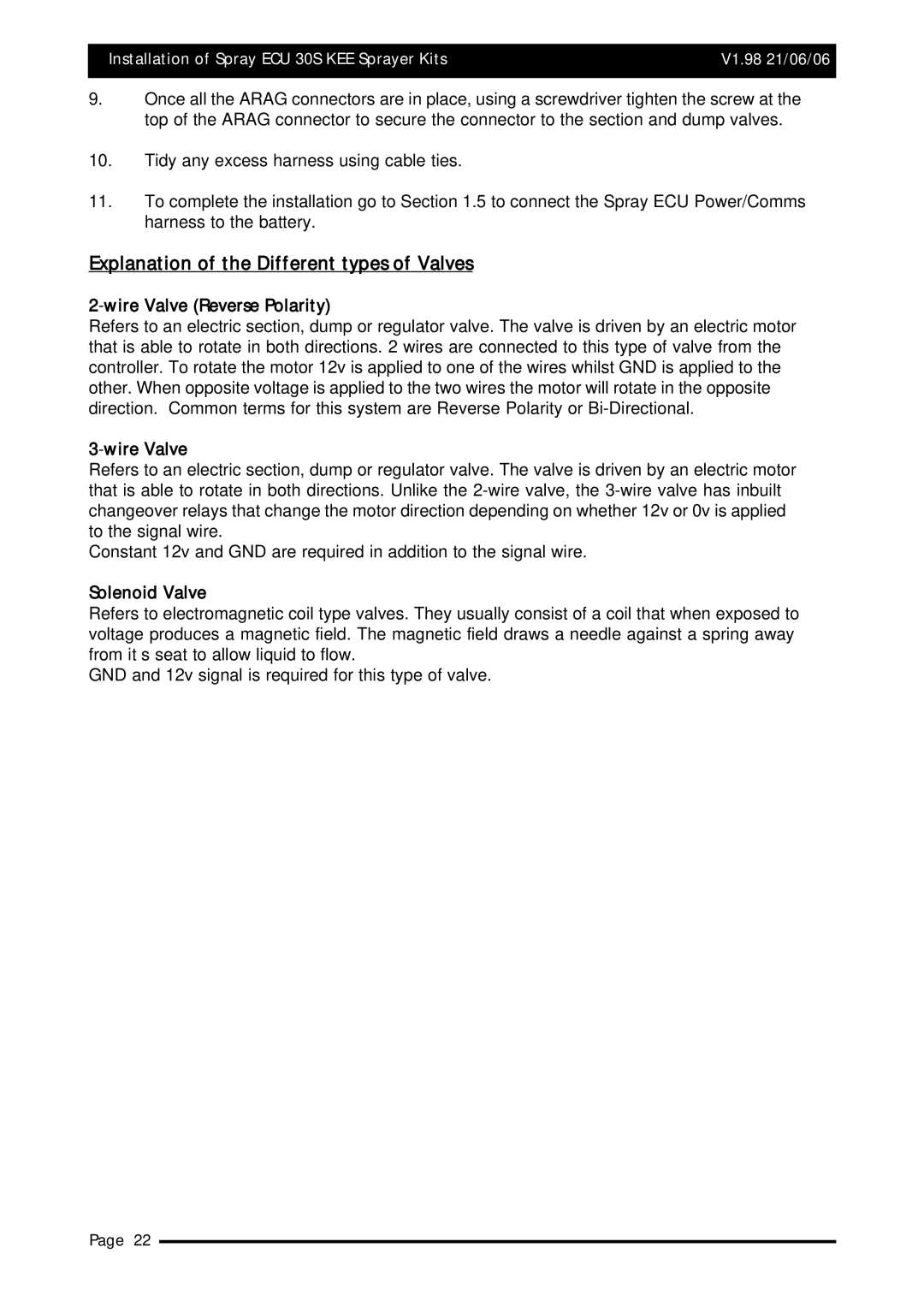Installation of Spray ECU 30S KEE Sprayer Kits | V1.98 21/06/06 |
|
|
9.Once all the ARAG connectors are in place, using a screwdriver tighten the screw at the top of the ARAG connector to secure the connector to the section and dump valves.
10.Tidy any excess harness using cable ties.
11.To complete the installation go to Section 1.5 to connect the Spray ECU Power/Comms harness to the battery.
Explanation of the Different types of Valves
Refers to an electric section, dump or regulator valve. The valve is driven by an electric motor that is able to rotate in both directions. 2 wires are connected to this type of valve from the controller. To rotate the motor 12v is applied to one of the wires whilst GND is applied to the other. When opposite voltage is applied to the two wires the motor will rotate in the opposite direction. Common terms for this system are Reverse Polarity or
Refers to an electric section, dump or regulator valve. The valve is driven by an electric motor that is able to rotate in both directions. Unlike the
Constant 12v and GND are required in addition to the signal wire.
Solenoid Valve
Refers to electromagnetic coil type valves. They usually consist of a coil that when exposed to voltage produces a magnetic field. The magnetic field draws a needle against a spring away from it’s seat to allow liquid to flow.
GND and 12v signal is required for this type of valve.
Page 22
